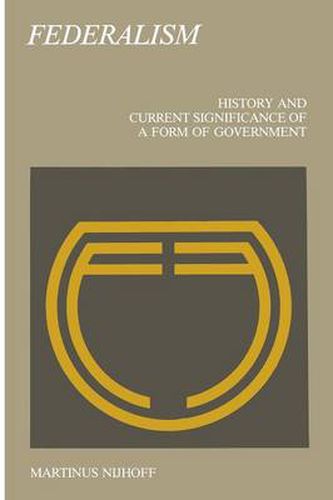Readings Newsletter
Become a Readings Member to make your shopping experience even easier.
Sign in or sign up for free!
You’re not far away from qualifying for FREE standard shipping within Australia
You’ve qualified for FREE standard shipping within Australia
The cart is loading…






This title is printed to order. This book may have been self-published. If so, we cannot guarantee the quality of the content. In the main most books will have gone through the editing process however some may not. We therefore suggest that you be aware of this before ordering this book. If in doubt check either the author or publisher’s details as we are unable to accept any returns unless they are faulty. Please contact us if you have any questions.
The commemoration of the formation of the Union of Utrecht, four hundred years ago on 23 January 1579, was celebrated by many different events. One of these, certainly not the least important to historians, was the holding of an inter national congress in Utrecht and Zeist on 8, 9 and 10 May 1979, organized by the Dutch Historical Association. This Association had decided to select a theme which fitted well in the framework of the Union celebrations: federalism, history and current significance of a form of government. For the Union of Utrecht con stituted the legal foundation, even the constitution, it is claimed, of the Republic of the United Netherlands, and that commonwealth can undoubtedly be regard ed as a very interesting example of a federal form of government. As is evident from the formulation of the congress theme the intention of the or ganizers was that attention should be given not only to federal and regional struc tures and tendencies in the past but also in the contemporary world. Historical phenomena needed (necessarily) to be viewed in present-day perspective, current problems ought if possible to be seen in historical perspective. There is no doubt that the prevailing view today, at least in the Western World, is to a great extent characterized by a growing dislike of the modern Leviathan, the highly centraliz ed, bureaucratic welfare State.
$9.00 standard shipping within Australia
FREE standard shipping within Australia for orders over $100.00
Express & International shipping calculated at checkout
This title is printed to order. This book may have been self-published. If so, we cannot guarantee the quality of the content. In the main most books will have gone through the editing process however some may not. We therefore suggest that you be aware of this before ordering this book. If in doubt check either the author or publisher’s details as we are unable to accept any returns unless they are faulty. Please contact us if you have any questions.
The commemoration of the formation of the Union of Utrecht, four hundred years ago on 23 January 1579, was celebrated by many different events. One of these, certainly not the least important to historians, was the holding of an inter national congress in Utrecht and Zeist on 8, 9 and 10 May 1979, organized by the Dutch Historical Association. This Association had decided to select a theme which fitted well in the framework of the Union celebrations: federalism, history and current significance of a form of government. For the Union of Utrecht con stituted the legal foundation, even the constitution, it is claimed, of the Republic of the United Netherlands, and that commonwealth can undoubtedly be regard ed as a very interesting example of a federal form of government. As is evident from the formulation of the congress theme the intention of the or ganizers was that attention should be given not only to federal and regional struc tures and tendencies in the past but also in the contemporary world. Historical phenomena needed (necessarily) to be viewed in present-day perspective, current problems ought if possible to be seen in historical perspective. There is no doubt that the prevailing view today, at least in the Western World, is to a great extent characterized by a growing dislike of the modern Leviathan, the highly centraliz ed, bureaucratic welfare State.